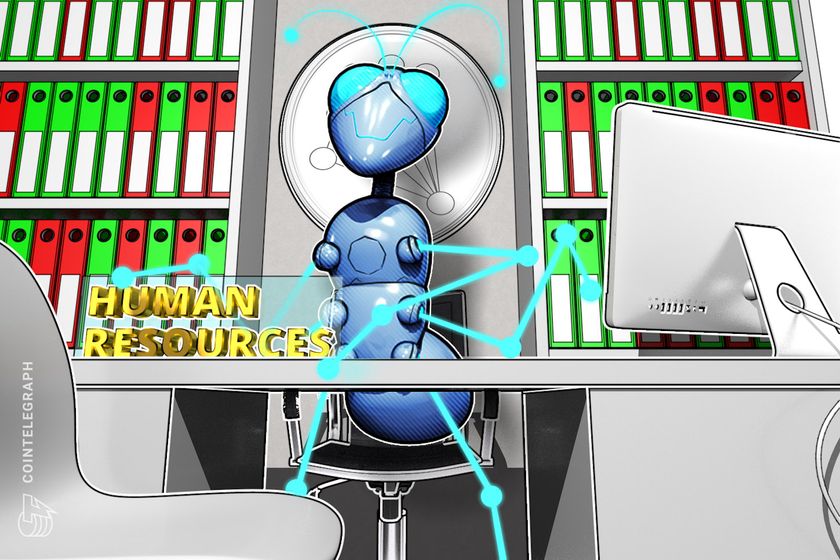
Opinion of: Ignacio Palomera, co-founder and CEO of Bondex
The world hiring landscape changes quickly. Today’s job seekers are turning more and more towards a generative AI to write motivation letters, resumption of tailors and even simulate the preparation of interviews.
The agentic AI is automatically applying, the generating AI writes personalized large-scale applications, and the AI tools applying self-application allow candidates to apply for thousands of roles in minutes. Employers are flooded with applications that seem polished, persuasive and adapted – but often lack the real signal of effort, capacity or authenticity.
When anyone can launch a polished and high quality application with only a few IA prompts, the traditional motivation letter – formerly considered a chance to stand out and show a real intention – becomes a commodity. It stops the signaling effort or enthusiasm and begins to look more like a standardized output.
Hiring managers are now looking at the reception boxes filled with personalized and personalized applications that feel strangely similar. And this is where the real problem comes into play: if everyone seems qualified on paper, how can you say who has skills and knows how to play an invitation? It is not a question of knowing who writes best, but of knowing who can prove that they can deliver in the real world.
A fragile confidence system is getting worse with AI
Traditional hiring has long been based on signals based on trust such as curriculum vitae, references and diplomas, but these have always been weak proxies. The titles can be inflated, an overestimated education and the previous work has exaggerated. The AI blurs even more things, browsing the unverifiable claims in artificial eloquence.
For native industries at a distance and from a distance such as cryptography or decentralized autonomous organizational ecosystems, the issues are even higher, because there is rarely time for a deep reasonable diligence. Confidence is prolonged quickly and often informally – risky in a pseudonym and global environment. More HR tools or AI detection will not solve this. What is necessary is a stronger basis for confidence itself.
It is time for the verifiable reputation and the use of Onchain
Consider a job manager who tries to check the history of work, social handles or contributions to onchain.
Today, decentralized identity systems (DID) help you prove that you are a real human – that you exist and that you are not a bot. It is useful, but it is only the beginning.
What they don’t treat is the deeper layer: what did you really do? There is a new emerging border – that where your professional history, your identification information and your contributions can be verified and made laptops. It is not only a question of checking a box to prove that you exist. It’s about codifying your experience so that your reputation is built on what you have done, not just what you say.
In relation: Blockchain needs regulations, scalability to fill the hiring space of IA
In this model, your CV becomes a programmable asset. It is not a static PDF but something that can evolve, be questioned and, in some cases, be checked in private without revealing each detail. This is where the tools such as zero knowledge are involved, giving users control of what they reveal and to whom.
Some might say that all of this seems a little too invasive. In practice, however, and in particular in web3, the most serious contributors already operate through pseudonym identities based on pro -provable actions, and not employment titles. The Dids brought us to “real humans”. The verifiable reputation brings us to “real contributors”. And it is the fundamental change that deserves to be paid attention.
HR filters at intelligent contract doors
As the reputation becomes programmable, entire industries are reshaped. Subsidies, hiring of towers and even tokens sales could use promotable identification information as filters. No more guessing that is qualified or inquesting. You cannot simulate a merged traction request in a basic repository or pretend to have completed a course linked to a non -bubble token (NFT) issued by an intelligent contract.
This makes Trust composable – something that can be integrated into the default protocols and platforms. What is provable today includes contributions, learning history and verifiable references. Soon, whole work stories could be onchain.
An upgrade of confidence for the hiring of the AI era
The job demand generated by AI is only a symptom of a greater ventilation of confidence. We have long accepted unverifiable self-declaration as a lack of hiring, and now we are faced with the consequences. Identity and identification systems based on blockchain offer a path to follow – where individuals can prove that their work and hiring decisions can be based on verifiable data, not conjectures.
We must stop claiming that polished language equal to proof of competence. If hiring – and wider reputation systems – must survive the next wave of AI, we must rebuild the basics of confidence. Onchain references are a convincing starting point.
Opinion of: Ignacio Palomera, co-founder and CEO of Bondex.
This article is for general information purposes and is not intended to be and must not be considered as legal or investment advice. The points of view, the thoughts and opinions expressed here are the only of the author and do not reflect or do not necessarily represent the opinions and opinions of Cointellegraph.